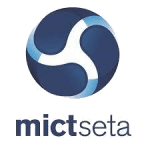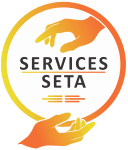
Course Introduction: Developing ASP.NET MVC 4 Web Applications Training
In this Developing ASP.NET MVC 4 Web Applications course (MVC Courses; MVC 4 Training ; .Net Training Courses; Asp Courses; Asp.Net Mvc Training; Asp Course) , delegates will be taught how to develop advanced ASP.NET MVC applications making use of .NET Framework 4.5 tools and technologies. The emphasis will be on coding activities that strengthen the performance and relevance of the Web site application. Delegates will be introduced to ASP.NET MVC in comparison with Web Forms so that they can know when to use each respectively.

Design Top Applications
Course Outline: Developing ASP.NET MVC 4 Web Applications Training
Johannesburg (Sandton), Cape Town, Durban, Port Elizabeth, Pretoria – South Africa
Key outcomes of the course (MVC Courses; MVC 4 Training ; .Net Training Courses; Asp Courses; Asp.Net Mvc Training; Asp Course) include:
• ASP.NET MVC 4 Web Applications Designing and exploration
• ASP.NET MVC 4 Models, Controllers and Views development
• ASP.NET MVC 4 Web Applications testing and Debugging
• ASP.NET MVC 4 Web Applications Structures
Module 8: Applying Styles to ASP.NET MVC 4 Web Applications
The goal of this module is to explore how students can impose a consistent look and feel to an MVC application and share other common components, such as headers and footers, between all Views. Besides describing CSS styles and template views, the module will discuss how to migrate a look and feel created by a web designer into an MVC application. Techniques for adapting the display of a site for small screens and mobile devices will also be introduced.
Lessons:
Using Template Views
Applying CSS to an MVC Application
Creating an Adaptive User Interface
Lab : Applying Styles to ASP.NET MVC 4 Web Applications
Using Template Views
Applying a Consistent Look and Feel to an MVC Application
Adapting Webpages for Different Browsers
After completing this module, students will be able to:
Implement a consistent look and feel, including corporate branding, across an entire MVC web application.
Module 9: Building Responsive Pages in ASP.NET MVC 4 Web Applications
The goal of this module is to describe to the students how partial page updates and caching can optimize the responsiveness of a web application. Students will see how to make use of AJAX helpers and partial views to update small portions of a page instead of refreshing the entire page. The module also covers the different caches developers can use to store rendered pages and discusses how to configure caching for maximum performance.
Lessons:
Using AJAX and Partial Page Updates
Implementing a Caching Strategy
Lab : Building Responsive Pages in ASP.NET MVC 4 Web Applications
Using Partial Page Updates
Configuring ASP.NET Caches
After completing this module, students will be able to:
Use partial page updates and caching to reduce the network bandwidth used by an application and accelerate responses to user requests.
Module 10: Using JavaScript and jQuery for Responsive MVC 4 Web Applications
The goal of this module is to teach the students techniques that run code on the browser. This approach can increase the responsiveness of the application because a rendered page can respond to a user action without reloading the entire page from the server. Students will learn about the jQuery script library and how to use it to call web services and update user interface components.
Lessons:
Rendering and Running JavaScript Code
Using jQuery and jQueryUI
Lab : Using JavaScript and jQuery for Responsive MVC 4 Web Applications
Using jQuery to Respond to Users
Using jQueryUI to Build a User Interface
After completing this module, students will be able to:
Write JavaScript code that runs on the client-side and utilizes the jQuery script library to optimize the responsiveness of an MVC web application.
Module 11: Controlling Access to ASP.NET MVC 4 Web Applications
The goal of this module to ensure good security in terms of strong authentication and authorization for access. The lessons describe how to enable anonymous users to create their own user account and gain privileged access to content.
Lessons:
Implementing Authentication and Authorization
Assigning Roles and Membership
Lab : Controlling Access to ASP.NET MVC 4 Web Applications
Configuring Authentication
Controlling Access to Resources
Providing User Account Facilities
After completing this module, students will be able to:
Implement a complete membership system in an MVC 4 web application.
Module 12: Building a Resilient ASP.NET MVC 4 Web Application
The goal of this module is to enable the students to build applications that are stable and reliable. Such applications are not vulnerable to common hacking techniques such as cross-site scripting and also store state information such as the contents of a shopping cart and user preferences. This state information is preserved when servers or browsers restart, connections are lost, and other connectivity issues occur.

Lessons:
Developing Secure Sites
State Management
Lab : Building a Resilient ASP.NET MVC 4 Web Application
Storing User Preferences
Using User Preferences in the Photo Gallery
After completing this module, students will be able to:
Build an MVC application that resists malicious attacks and persists information about users and preferences.
Module 13: Using Windows Azure Web Services in ASP.NET MVC 4 Web Applications
The goal of this module is to introduce Windows Azure to the students and explain why a developer would write a Windows Azure service instead of code in a web application. Students will also see how to write such a service and call it from a web application or from other applications, such as a mobile device app.
Lessons:
Introduction to Windows Azure
Designing and Writing Windows Azure Services
Consuming Windows Azure Services in a Web Application
Lab : Using Windows Azure Web Services in ASP.NET MVC 4 Web Applications
Creating and Coding a Windows Azure Service
Consuming Data from a Windows Azure Service
After completing this module, students will be able to:
Describe how to write a Windows Azure web service and call it from and MVC application.
Module 14: Implementing Web APIs in ASP.NET MVC 4 Web Applications
The goal of the module is to introduce the concept of a Web API to students and to describe how to make an application’s core functionality more broadly available for integration into other web and mobile applications. Students will learn about the new Web API feature of MVC 4 and see how to build a RESTful Web API and call it from other applications.
Lessons:
Developing a Web API
Calling a Web API from Mobile and Web Applications
Lab : Implementing Web APIs in ASP.NET MVC 4 Web Applications
Developing a Web API in MVC 4
Adding Routes and Controllers to Handle REST Requests
Calling RESTful services from Client-Side Code
After completing this module, students will be able to:
Describe what a Web API is and why developers might add a Web API to an application.
Module 15: Handling Requests in ASP.NET MVC 4 Web Applications
The goal of this module is to describe how to write components that intercept requests from browsers before they are received by MVC Controllers. These components include HTTP Modules, HTTP Handlers, and the Web Sockets protocol. The module describes scenarios in which developers use such components and shows how to add them to an MVC application.
Lessons:
Using HTTP Modules and HTTP Handlers
Using Web Sockets
Lab : Handling Requests in ASP.NET MVC 4 Web Applications
Writing a Web Handler that Uses Web Sockets
Building a Chat Room in the Photo Sharing Application
After completing this module, students will be able to:
Modify the way browser requests are handled by an MVC application.
Module 16: Deploying ASP.NET MVC 4 Web Applications
The goal for this module is to enable students to deploy a completed MVC application to a web server or Windows Azure. The module begins by describing testing, staging, and production deployments and the web server environments required for each. It also describes the advantages and disadvantages of using Windows Azure to host the application. Students also see all the available deployment options in Visual Studio.
Lessons:
Deploying Web Applications
Deploying MVC 4 Applications
Lab : Deploying ASP.NET MVC 4 Web Applications
Deploying an Application to Windows Azure
Testing the Completed Application
After completing this module, students will be able to:
Describe how to package and deploy an ASP.NET MVC 4 web application from a development computer to a web server for staging or production.
Course duration and fees: Developing ASP.NET MVC 4 Web Applications course Training Course
Our two day training course is designed so that the knowledge acquired is applied practically, so that the business environment can be enhanced.
Please consult schedule for course costs or contact BOTI for a quote.

Recommended Prior Experience and Knowledge: Developing ASP.NET MVC 4 Web Applications course Training
The course (Developing ASP.NET MVC 4 Web Applications course Training Course or (MVC Courses; MVC 4 Training ; .Net Training Courses; Asp Courses; Asp.Net Mvc Training; Asp Course) ) is designed for the following attendees:
• Small to large advanced developer individuals or teams who operate in Microsoft Visual Studio
• Delegates who wish to produce advanced Web applications and manage Delegates with interest in developing advanced web applications and managing t rendered HTML at length.
Book or Obtain Instant Quote
In addition to the related public courses, we offer the MVC Courses (MVC 4 Training; .Net Training Courses; Asp Courses; Asp.Net Mvc Training; Asp Course) across the country: Anytime, Anywhere. Click on the link to get an instant proposal or book your course NOW:
Or alternatively click on the button below to view our full Public Course Calendar of close to 100 events:

Please Phone Us Now To Speak to One of Our Friendly Consultants
Tel:011-882-8853
OR
FOR CELL PHONES CLICK TO CALL
Please Fill in the Form – We Will Get Back to You Within 15 minutes
Please Email Us Now – We Will Get Back to You Within 15 minutes
[email protected]
Don’t delay. Skill up at BOTi Today.
BOTi – Get On Course



